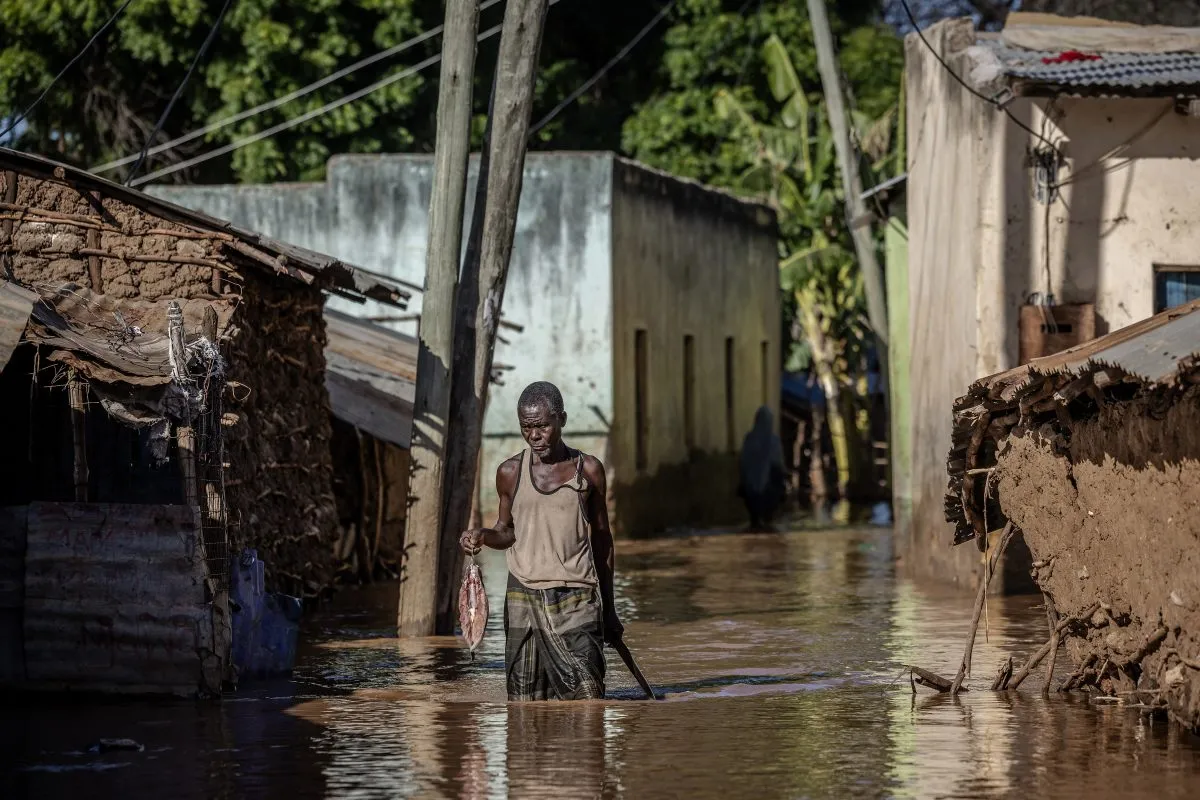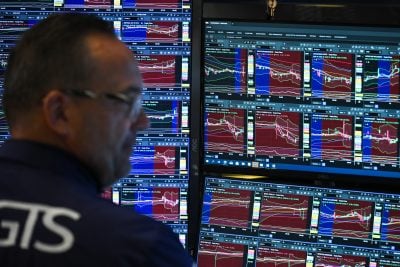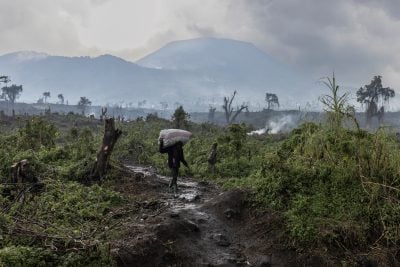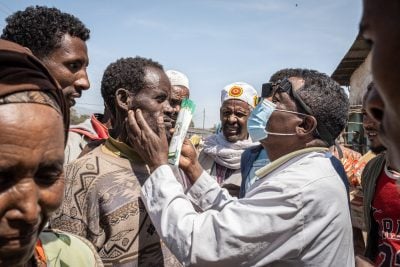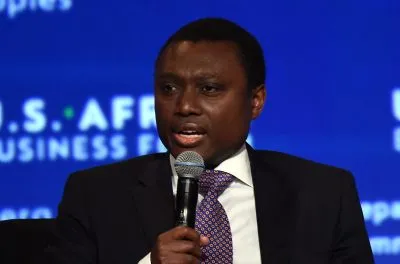From the Sahel to the Horn of Africa, and from the North to the South, African countries are bearing the brunt of increasingly severe droughts and floods caused by climate change.
For example, nearly 300 people have died in Kenya since March in floods caused by above-normal rainfall. More than 58,000 households were affected, impacting about 300,000 people and causing millions of dollars’ worth of damage.
The African Observatory of Sustainable Finance (AOSF), launched in May during the African Finance Network’s Sustainable Finance Meetings, in Sfax Tunisia, aims to find financial solutions to help Africa prevent and recover from the devastating environmental events afflicting it on an increasingly regular basis.
Major stakeholders include the Tunisian Ministry of the Environment, the Tunis Stock Exchange, QNB, the University of Sfax, ISCAE Morocco, STB Finance, and AMEF Consulting. The Observatory aims to provide regular assessments of the progress of sustainable finance and the ecological transition in Africa to governments and civil society so that they are better prepared to deal with climate events.
Dhafer Saïdane is a professor at the SKEMA Business School site in Lille, France and president of the African Finance Network (AFN). He tells African Business that “The goal is to set up an African CSR [corporate social responsibility] Council to adapt European directives on the environment and climate to the realities of African countries, promote the idea of a Climate Damage Awareness Fund for financing strategies against climate risks in Africa, and consider an action and solidarity plan for exchange and education on the ecological transition.
“The Observatory will monitor, and then propose ESG [environmental, social, and governance] measurement tools and clarify ideas through the publication of policy documents, to provide stakeholders with information that will enable them to understand current developments in the field of sustainable finance fully.”
A dearth of climate finance
The challenges that the AOSF wants to tackle principally stem from climate inequalities.
Africa emits only 3% of greenhouse gases, even though it accounts for 20-25% of the world’s population.
“Africa is part of the equation in the fight against climate change, not because it causes it, but rather because it suffers from it,” Christian de Boissieu, emeritus professor at Paris 1 Sorbonne University and member of the AFN, tells African Business.
Despite disproportionately suffering from climate change and receiving repeated pledges from wealthier nations to close the funding gap, Africa still does not have sufficient finance to deal with the impacts of a changing climate.
In 2009, rich world countries pledged $100bn a year by 2020 to poorer countries disproportionately harmed by climate change. The commitment was reaffirmed in the landmark 2015 Paris Climate Agreement, but only $353bn was paid from 2015 to 2020, according to Reuters.
A loss and damage fund was launched at COP28 in Abu Dhabi in November 2023 to further support developing nations. The initiative was applauded by experts and climate activists, but critics say it remains to be seen whether the initiative will be amply financed.
Navigating the ecological transition will cost “between 2% and 5% of the GDP of each country concerned per year,” according to de Boissieu. In Tunisia, for example, taking an estimated 2% of its current $54.7bn GDP a year, $1.1bn a year is needed to finance the ecological transition. If it reaches the upper range of 5%, the bill rises to $2.8bn.
For the continent as a whole, the transition towards clean energy will require an annual investment of $190bn, according to Nassim Oulmane, director of the climate change and natural resources management division of the United Nations Economic Commission for Africa.
“Debt-related vulnerabilities remain high on the continent,” says Oulmane. “African nations are often forced to choose between repaying their debt and financing essential sectors. Understandably, governments are constrained when it comes to funding ambitious projects,” he says.
“This represents astronomical sums for most African countries, which are already over-indebted,” says de Boissieu.
“Africa does not have financial markets at a developed stage, unlike the countries of the North. They are still emerging.”
ESG tools for the private sector
In response, the AOSF aims to mobilise both conventional and sustainable finance for Africa through a variety of methods. Working with the private sector to improve their environmental, social and governance (ESG) metrics will be a key part of the Observatory’s mandate.
“The Observatory aims to help companies get to grips in terms of sustainable finance,” Nabil Jedlane, professor at l’École Nationale de Commerce et de Gestion (ENCG) Tanger and chairman of the Scientific Council of AFN, tells African Business. “It will monitor the transformation and commitments of the African financial sector towards more sustainable and responsible finance.”
“It is imperative to mobilise private sector capital and support small and medium enterprises (SMEs), which drive the growth of our economies by generating employment and stimulating innovation,” adds Oulmane. “It is imperative to mobilise private sector capital and support SMEs, which drive the growth of our economies by generating employment and stimulating innovation,” adds Oulmane.
AOSF uses SPIscore, an indicator that measures the ESG performance of companies and stakeholder satifaction.
“We measure scores by stakeholder, and a final score based on the company’s ESG strategies,” Sana Ben Abdallah, professor at the Faculté des Sciences Économiques et de Gestion de Sfax, member of AFN and co-founder of SPIscore, tells African Business.
“It is a customisable score that can be applied to any organisation and in different contexts, including companies and NGOs, for example.”
Score-based guidance – already provided to private sector firms including STB Finance in Tunisia and BDMG in Brazil – consists of three phases. Once the score has been calculated, experts draw up a report and make recommendations to the entities concerned to enhance their ESG strategy.
“ESG measurement tools of this kind have not yet been developed in Africa. We want to encourage African companies to use them, as it has become a necessity worldwide,” says Ben Abdallah.
Improving ESG scores will not only benefit African companies in domestic markets. African companies also increasingly need to comply with global environmental regulations devised elsewhere in the world. The EU’s new carbon tax, for example, is set to impose import charges based on the carbon dioxide emissions in manufacturers’ production, by 2026.
Africa could lose $25bn per year when the new carbon tax comes into effect, according to the African Development Bank – money which could be spent on Africa’s adaptation and mitigation needs.
The Observatory says that working to improve African companies’ ESG scores will thus have both positive business and environmental impacts.
A collaborative approach
At the heart of the AOSF’s approach to such issues is multi-disciplinary collaboration, says Jedlane.
“Africa needs to take things up a notch not to miss the boat. That is why we work in harmony with all the other players – professionals, academics and institutions. For example, the AFN’s scientific advisory board includes professors and specialists, as well as bank and microfinance directors and managers from international institutions. This enables us to think globally.”
That extends to collaboration between the rich world, which needs to be brought along in the climate transition, and the African countries who desperately need their financial support.
“The originality of the AOSF lies in its pan-African identity, but also in its desire for collaboration between the South and the North, not conflict between them,” de Boissieu says.
Want to continue reading? Subscribe today.
You've read all your free articles for this month! Subscribe now to enjoy full access to our content.
Digital Monthly
£8.00 / month
Receive full unlimited access to our articles, opinions, podcasts and more.
Digital Yearly
£70.00 / year
Our best value offer - save £26 and gain access to all of our digital content for an entire year!


 Sign in with Google
Sign in with Google 